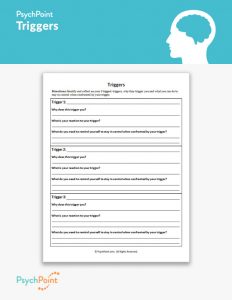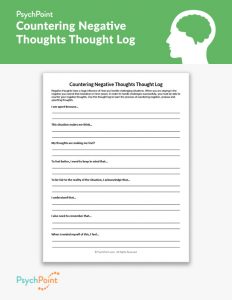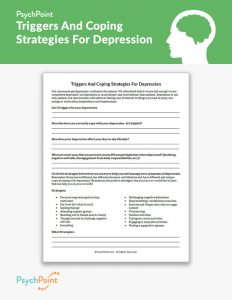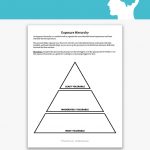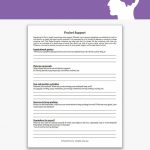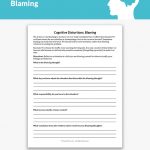Cognitive Distortions: Personalization Worksheet
Worksheet published on April 19th, 2021
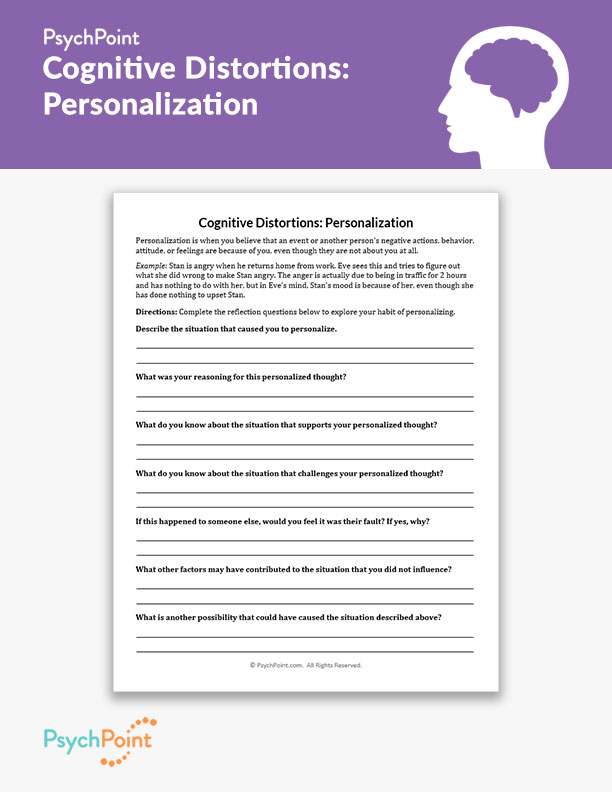
Learning about cognitive distortions can be helpful for a person in therapy. A cognitive distortion is a pattern of unhealthy thinking. When a person thinks through cognitive distortions, they are not able to see a situation clearly. This can impact their judgment and how they view themselves and the world around them.
A cognitive distortion that many people experience is personalization. Personalization is when a person believes that a behavior or a reaction they see from others is happening because of something they have done wrong.
People who personalize often struggle with self-esteem. They also struggle to see such situations objectively and understand that what is happening may not be because of them. It is an unhealthy way to think, and helping a client see the error in thinking can help them build self-esteem and challenge negative thoughts.
About This Worksheet
This is the Cognitive Distortions: Personalization worksheet. This worksheet provides an overview of what personalization is and how it can affect a person’s perspective. The Cognitive Distortions: Personalization worksheet provides an example of personalization, along with reflection questions for the client to complete.
This worksheet can supplement adolescents and adults in therapy. It can be helpful for individual and group sessions and is intended to aid in cognitive behavioral therapy.
Instructions
Review what personalization is and how it is affecting the client’s thought processes. Provide examples of what has been discussed in the session to help illustrate how personalization is negatively impacting the client’s thoughts.
When you are confident the client understands what personalization is, review the introduction of the worksheet with them. Answer any questions they have about the concept. Allow the client time to complete the reflection questions.
When the client has completed the reflection questions, review the results with them. Discuss how they feel personalizing thoughts are affecting their self-esteem and self-image.

